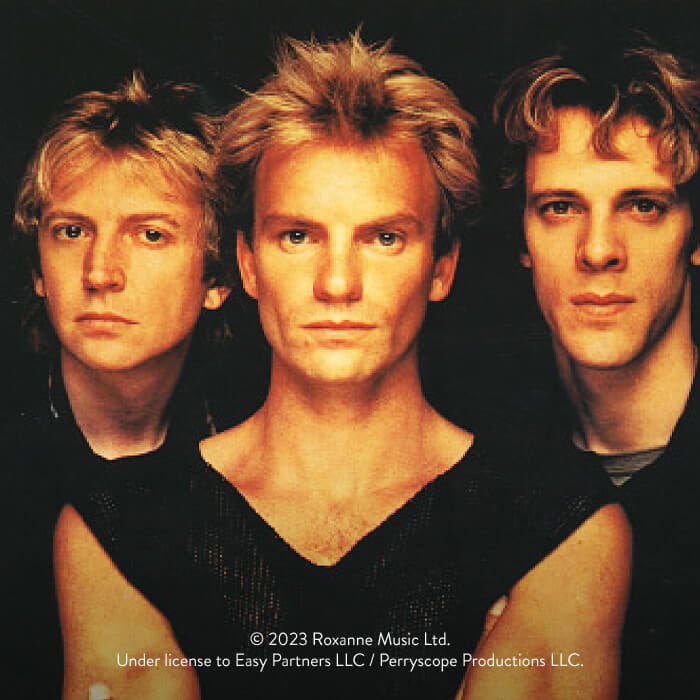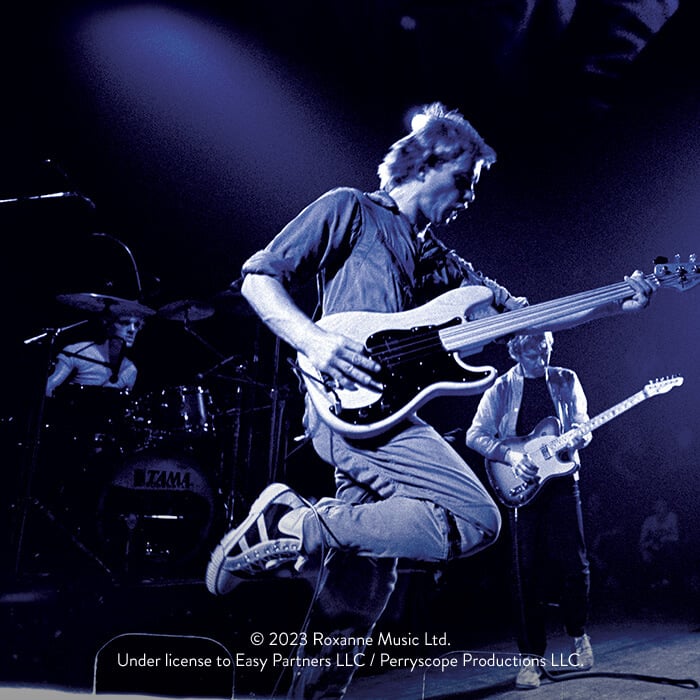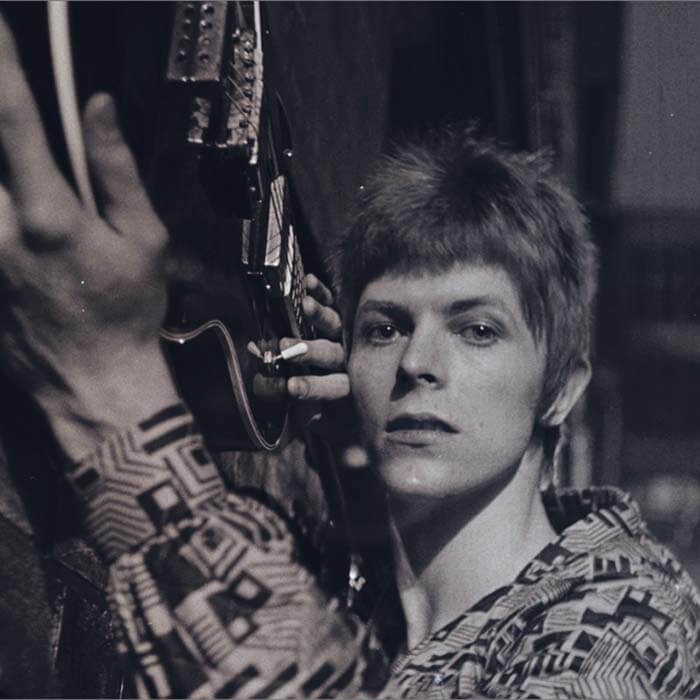David Bowie’s fearless and singular vision struck a global chord which can still be felt and heard today, turning Bowie into one of British music’s most enduring icons.

An Enduring Icon
One of British music’s most enduring icons, David Bowie’s influence as a fearless and singular visionary, whose unabashed otherness struck a global chord, is still felt and heard today. Here, we look back at his remarkable legacy and career spanning more than half a century.
Turning down a grammar school place because of his love of art, Bowie attended Bromley Technical High School. Leaving at 16, he started working as a commercial artist and continued to pursue his music, fronting several bands. A few singles were cut, but mainstream success proved elusive. At 19 years old, in order to avoid confusion with Davy Jones of The Monkees, he became David Bowie, a name inspired by the Bowie knife.
A stint as a solo artist failed to yield success, prompting Bowie to take a break from music. After spending time in a Buddhist retreat, he formed a short-lived mime troupe called Feathers in 1968. A student of performance art, his skills would later serve him well on stage. Five days ahead of the Apollo 11 launch in July 1969, his breakthrough single ‘Space Oddity’ was released in the United Kingdom, peaking at number five in the British charts.
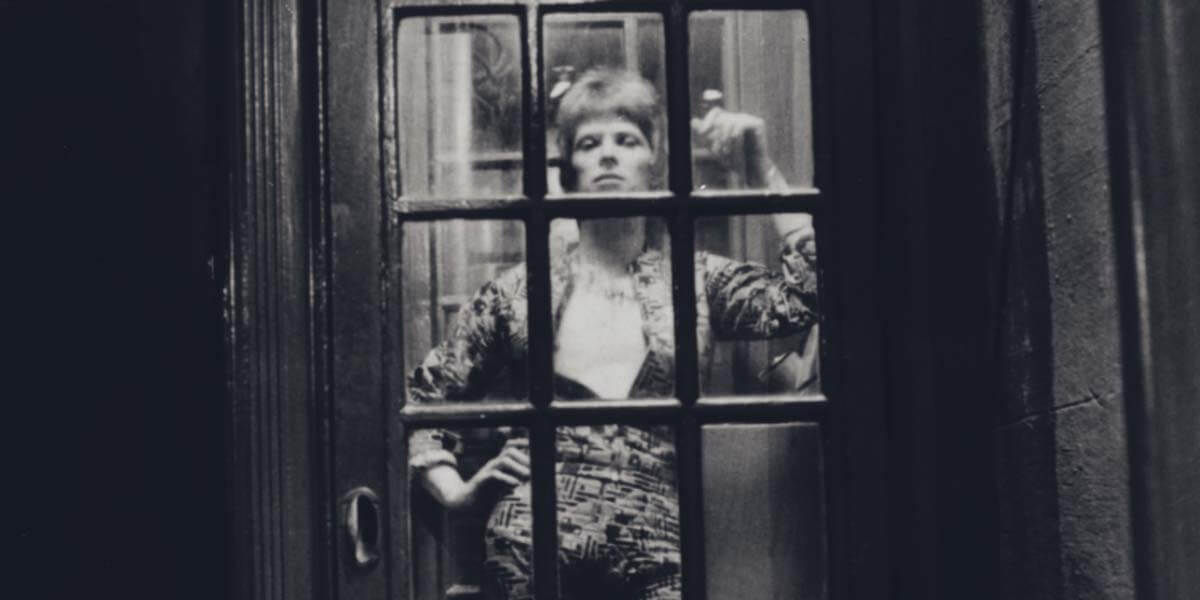
International Stardom
The formative and classic Bowie albums The Man Who Sold the World (1970) and Hunky Dory (1971) followed. Both garnered critical acclaim and included timeless Bowie originals such as the former’s title track and the latter’s ‘Life on Mars?’ and ‘Changes’. However, Bowie’s reinvention as the pansexual alien rock messiah Ziggy Stardust in 1972 both enthralled and outraged the world, setting him on the fast track to international superstardom. Bowie was never one to rest on his laurels and as the line between himself and the character blurred, he killed Ziggy Stardust off in 1973.
By the mid 1970s, Bowie was a huge star, with his ‘plastic soul’ tour de force Young Americans having earned him his first number one single in the United States with ‘Fame’. Following Station To Station and the accompanying tour that brought to life his Thin White Duke persona, Bowie retreated to the relative anonymity of Berlin. Experimenting with ambient and electronic textures as he worked with Brian Eno and Iggy Pop, the city re-energised his creativity. Spawning hits such as ‘“Heroes”’, ‘Sound and Vision’ and ‘DJ’, the Berlin trilogy of albums he recorded at this time are amongst his most innovative work. In 1976, the same year that he moved to Berlin, Bowie was cast in his first lead acting role in Nicholas Roeg’s The Man Who Fell to Earth.

Ashes to Ashes
Preceded by Bowie’s first UK number one single, ‘Ashes to Ashes’, which resurrected the Major Tom character from ‘Space Oddity’, Scary Monsters … and Super Creeps was released in September 1980. That same month saw Bowie take to the Broadway stage as John Merrick in The Elephant Man. More film roles followed and a generation of children grew up knowing him as Jareth the Goblin King from Jim Henson’s movie Labyrinth (1986), whilst Martin Scorsese cast him as Pontius Pilate in The Last Temptation of Christ (1988).
Let’s Dance shattered Bowie’s extended silence in April 1983 and quickly became the most commercially successful album of his career. Selling some 7 million copies worldwide, as its title track went to number one in more than half a dozen countries, it was much more than a global hit. The repercussions of its melding of rich fluid blues/rock guitar, rock solid funk grooves and irresistible vocal hooks still influence acts like The Killers, Franz Ferdinand and LCD Soundsystem. In 1988, however, Bowie unexpectedly switched off the solo spotlight with the formation of his new band, Tin Machine, who released two acclaimed albums before going on hiatus in the early 1990s.
A Fitting Farewell
Bowie opened the next decade with 1990s ‘Sound+Vision’ tour, a fitting farewell for many of Bowie’s greatest hits, which exceeded the reach of his monster 1980s tours ‘Serious Moonlight and Glass Spider’. The release of Black Tie White Noise in 1993 brought the return of David Bowie as a solo artist, whilst Bowie and Eno reunited in 1995 on the concept album Outside. In 1996, Julian Schnabel’s biopic Basquiat, co-starring Gary Oldman, Christopher Walken and Dennis Hopper, saw Bowie playing the character immortalised in his 1972 song ‘Andy Warhol’.

Reaching New Heights
Bowie continued to innovate through the 1990s and into the new century with bold new works like 1997’s Earthling, which featured the first song to be offered for download via the internet (‘Telling Lies’), and 1999’s Hours …, whilst his back catalogue continued to win him new generations of fans. In the year 2000, he played a legendary headline slot at Glastonbury Festival, having performed at the inaugural festival in 1971. Following the releases of Heathen (2002) and Reality (2003), many thought Bowie had stopped recording but he resurfaced in 2013 with The Next Day, an assured return to music that closed a stretch in which he was anything but quiet. During that decade, an exhibition curated by the V&A called ‘David Bowie is …’ opened in London and he appeared in Christopher Nolan’s The Prestige and the TV series Extras, created by Ricky Gervais and Stephen Merchant.
Bowie’s off-Broadway theatre production Lazarus, a collaboration with playwright Enda Walsh and directed by Ivo Van Hove, opened on 7 December 2015 to rave reviews, and closed on 20 January 2016 – a day that was proclaimed ‘David Bowie Day’ by the New York City Mayor’s office. Following this, Lazarus opened in London at the King’s Cross Theatre and ran until 22 January 2017.

Inspiring Generations of Musicians
The release of ★ (pronounced ‘Blackstar’), David Bowie’s 28th album, was announced for his 69th birthday on 8 January 2016. Co-produced by Bowie and his long-time collaborator Tony Visconti, featuring backing from local NYC jazz saxophonist Donny McCaslin and his quartet, it was a popular and critical success. It reached number one in 20 countries, including Bowie’s first US album chart number one, and led to many of the best reviews of Bowie’s career. On 10 January 2016, David Bowie died peacefully surrounded by his family after a courageous 18-month battle with cancer.
The body of work Bowie created over half a century has inspired millions, including generations of musicians, some of whom are only just discovering his work. As one of the latest music legends celebrated with a UK coin, his place amongst British music legends is assured for years to come.
Be inspired
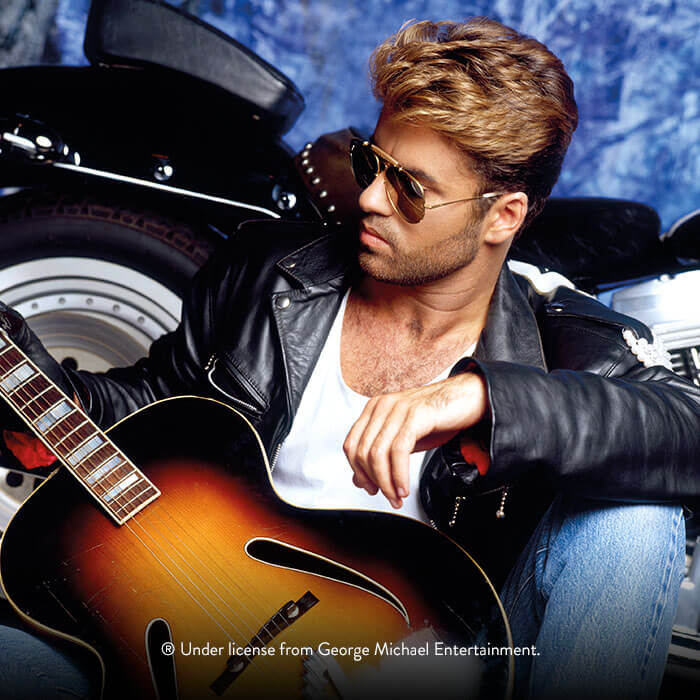
CELEBRATING THE LIFE AND LEGACY OF GEORGE MICHAEL
Discover The Legacy
MEET THE MAKER OF THE GEORGE MICHAEL COIN
Discover The Design Story
